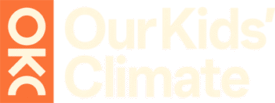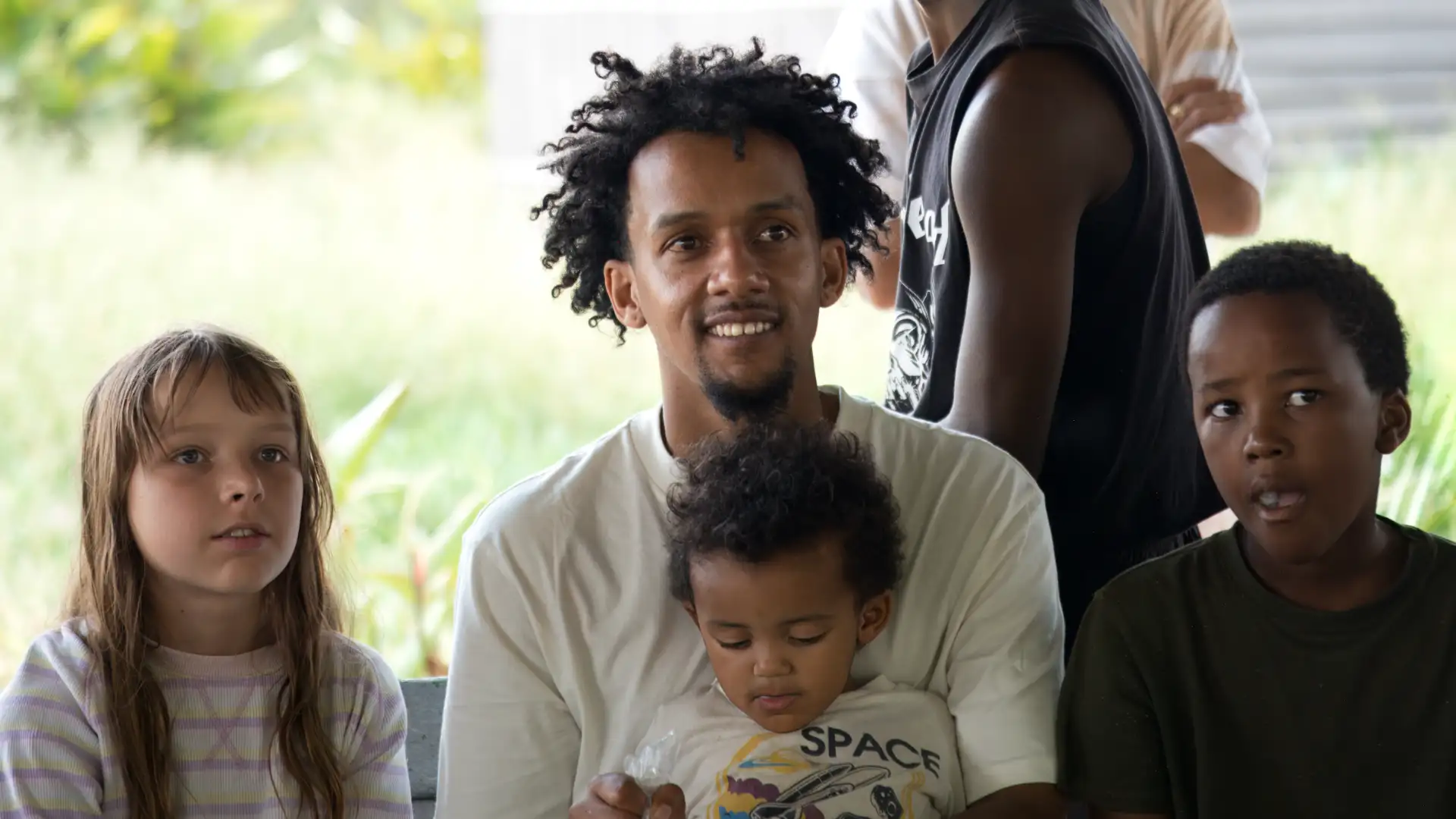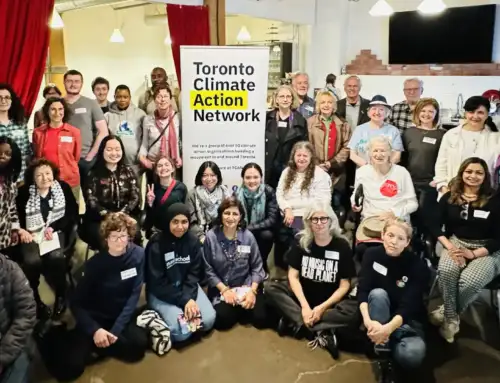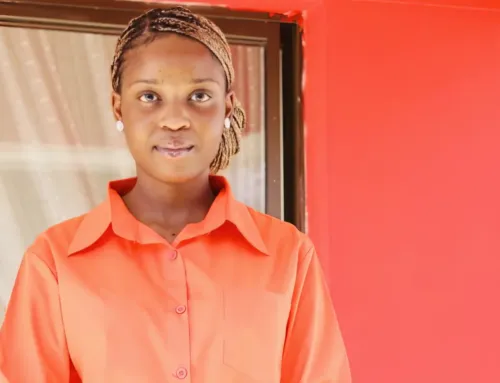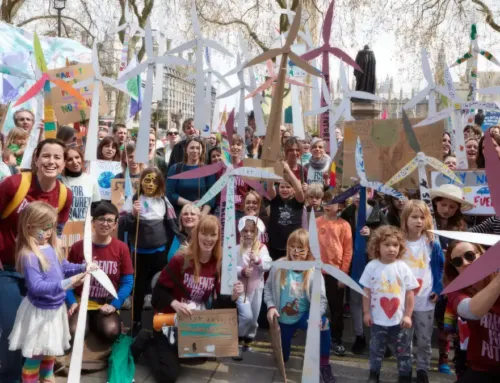STORIES
Chévanni Beon Davids:
Connection and belonging in a time of climate crisis.
An indigenous father, writer, and planetary activist, Chévanni is the founder of the Reimagined Learning Community in South Africa, which serves as a transformative hub, fostering holistic education and nurturing connections with learning, community, and the Earth. They conceive parenting as extending beyond caring for young people to encompass the well-being of the living planet.
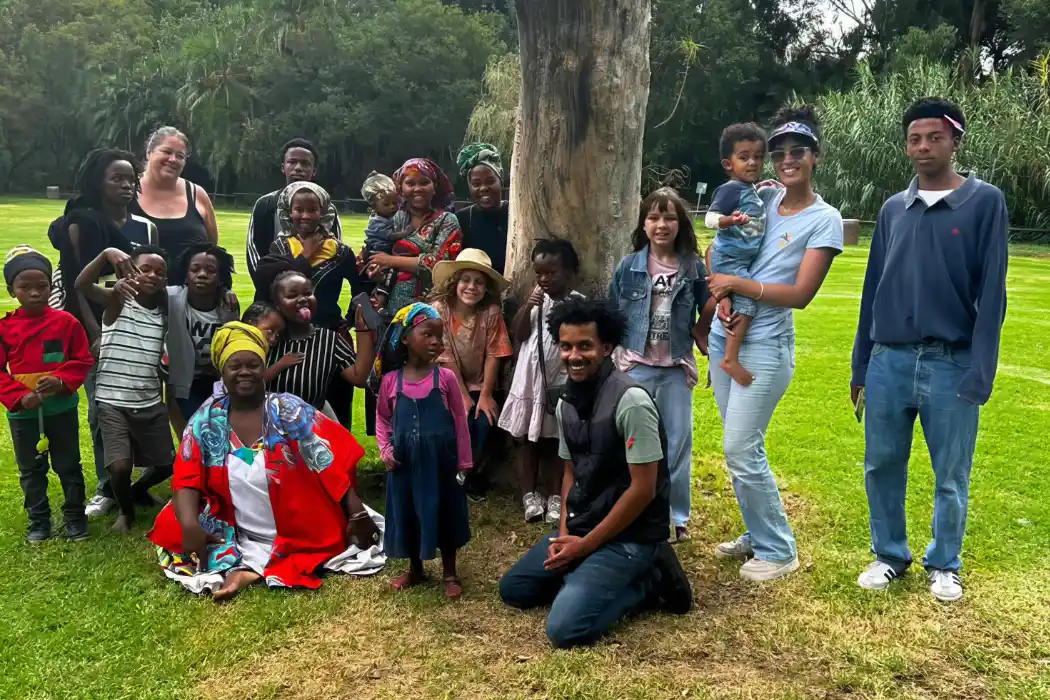
My climate journey is deeply rooted in the need to unlearn and the profound impact of our relationship with the natural world on our multilayered crisis. This awakening began when my family moved from an urban setting to the countryside. The move allowed my siblings and me to connect intimately with nature and a close-knit community. During this period of unstructured play and exploration, often without parental supervision, we unknowingly absorbed vital lessons about the environment. We climbed trees, foraged for berries and fruits, and observed the natural world around us. It was a time of joy and discovery, a unique learning experience.
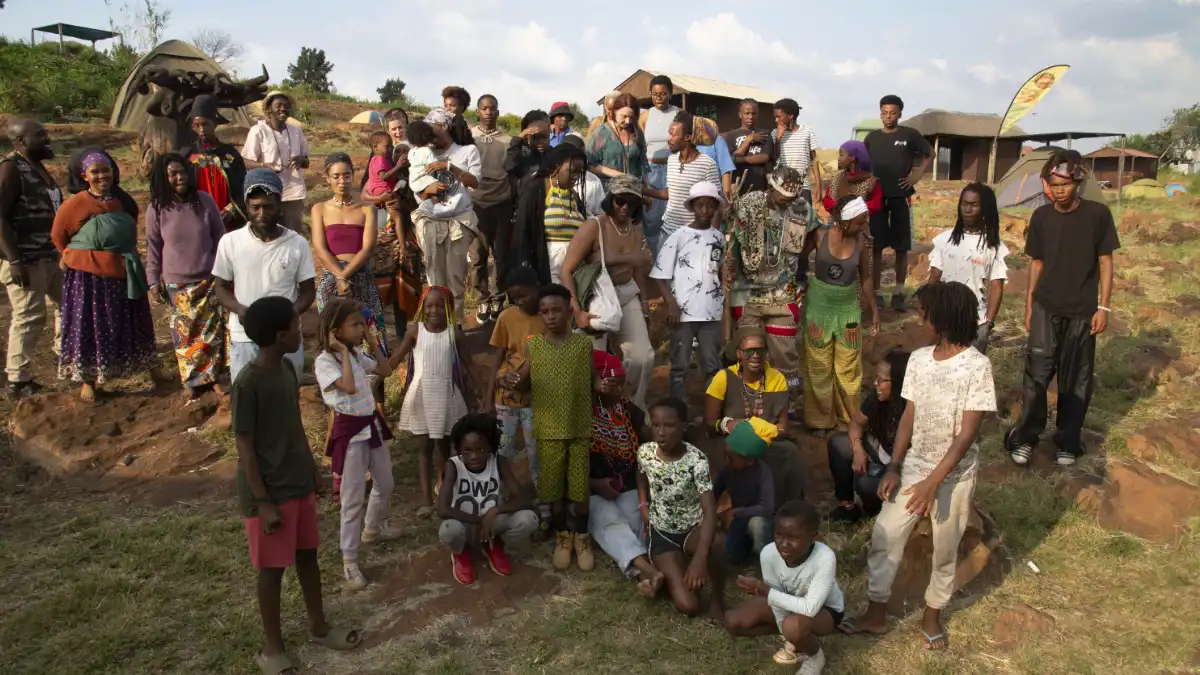
When I was ready to start school, I moved to the hard concrete city of Johannesburg where the beginning of my climate awareness was born. I saw how no one was planting food anymore in my new neighborhood except in tiny pots or pieces of land. We lost the ability to dance, pray, or sing to the various spirits that brought rain, brought sun. I wasn’t allowed to play in the streets because it was dangerous. We would play very close to a main road where there was so much noise and so much vehicular pollution. The night would be lit by streetlights, and we would not experience darkness as we did on the farm. Winters would be extremely cold. When fires were made in our area, it was always people burning plastic.
I was confronted with the individualistic, consumer-driven, and competitive nature of urban life. As a 13-year-old, I questioned why my parents, as brown black indigenous folk, were not able to thrive within the inner city economy, why my dad would be fired or discriminated against, why we seemed to always be struggling to get money for food, why we never had the ability to grow our own food. I also wondered why a lot of people felt so okay with burning plastic, burning rubber to keep warm or even to get rid of trash. I questioned why recycling or upcycling wasn’t a relevant thing for the brown and black community that I grew up in.
It was during my university years that a financial dilemma surrounding required textbooks ignited my questioning of the education system’s financial burden. I felt stripped from a way of being that would make me more relevant, to be able to care for my land, care for my community, care for nature. And I also saw how what we were taught in school was not a sense of responsibility or ritual, but was how we could do better than our peers, better than earth. We were taught that there are elements of earth that are non-living and here for our dominion. And this was very different from what the culture I was brought up in. And I think one of the most powerful realities that I came across, was this idea that our climate crisis, as much as all the other crises, aren’t really man made. They are system made.
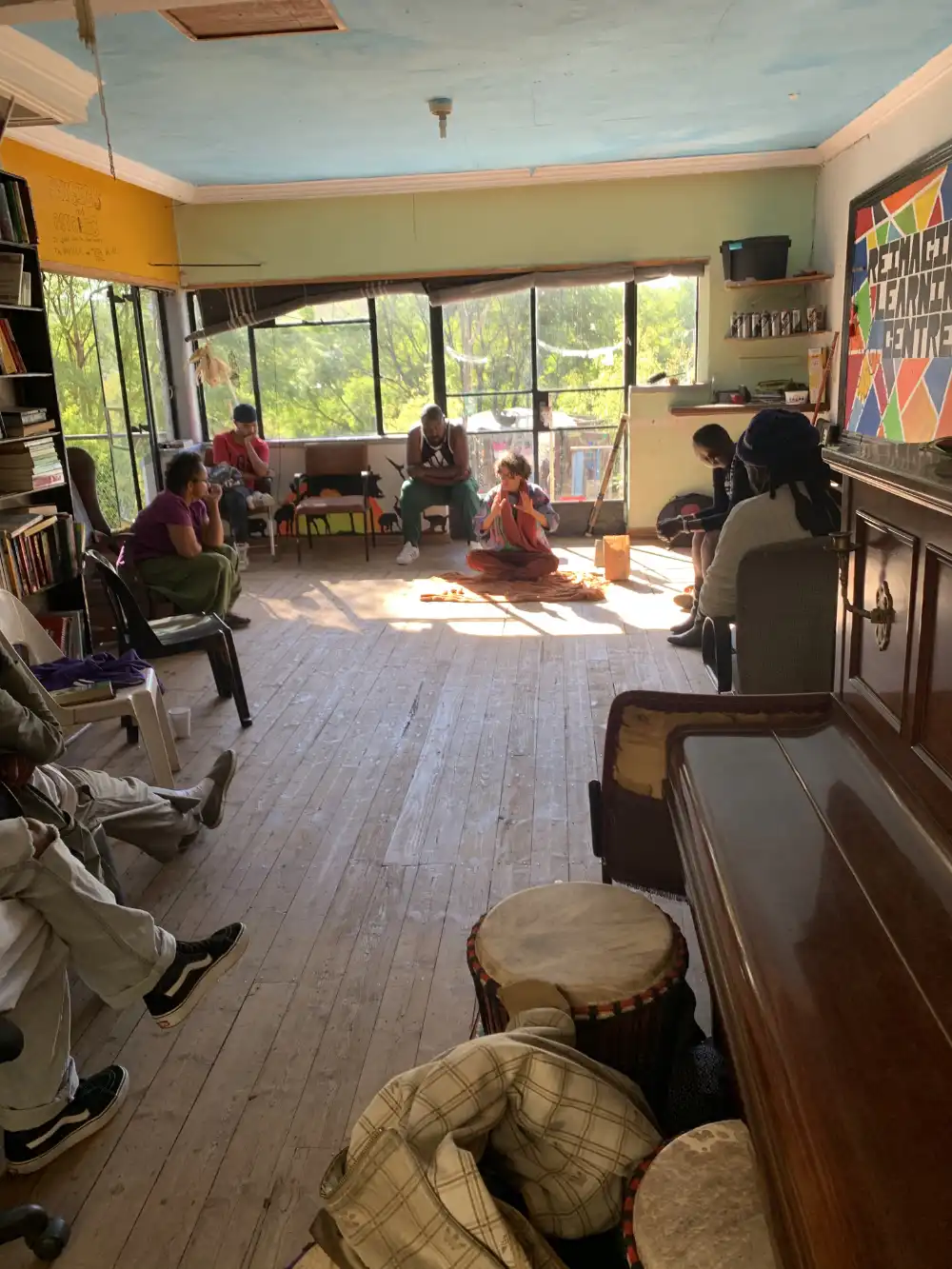

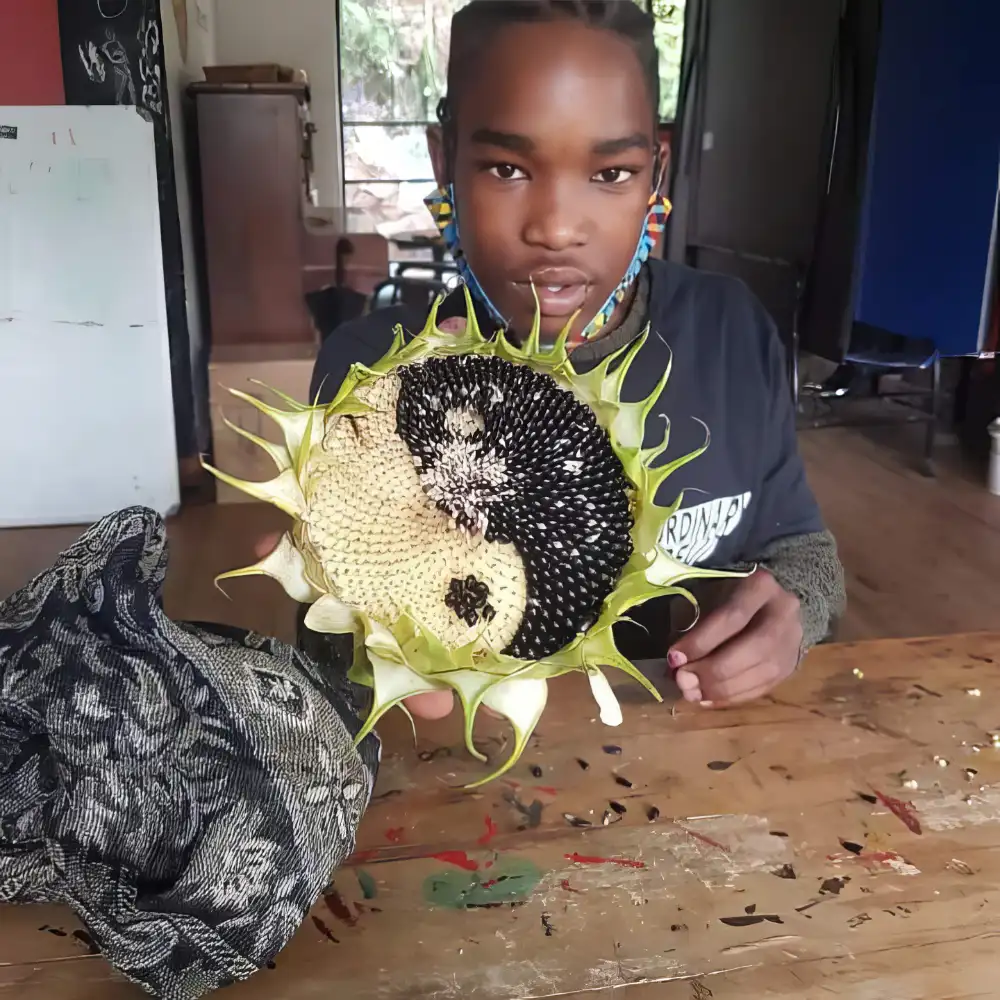
Our education system, our economic system, the way countries grow, the GDP is built on a fallacy that the Earth is infinite and that we can just keep on taking – we can just keep on building, destroying the forest, working the land, capturing fish from the sea and continue to pollute and develop more industries. Without facing any consequences.
I started meeting with brown and black parents from various communities, and we discussed how the education system is damaging or is problematic towards our children, and how there’s a difference between what is taught at home and what is taught in schools. And a lot of parents were curious about a different form of education, a different form of way of being, that was centered around our young people, and around a form of education that instilled a sense of responsibility on Earth.
The birth of my son and my work with young people further emphasized the need to challenge adultism in society. I realized that young people possess remarkable capacity and imagination to respond to crises, yet their voices are often ignored or undervalued. We started looking at how the way we treat earth in the capitalist world is very similar to the way we treat young people. Young people are to be seen and not heard. We asked ourselves what would happen if we treated young people in the same way that we were taught to treat the earth? And that means that young people have the freedom to play. They are also held in high regard and allowed to speak in council meetings, have their voices heard and to be considered seriously.
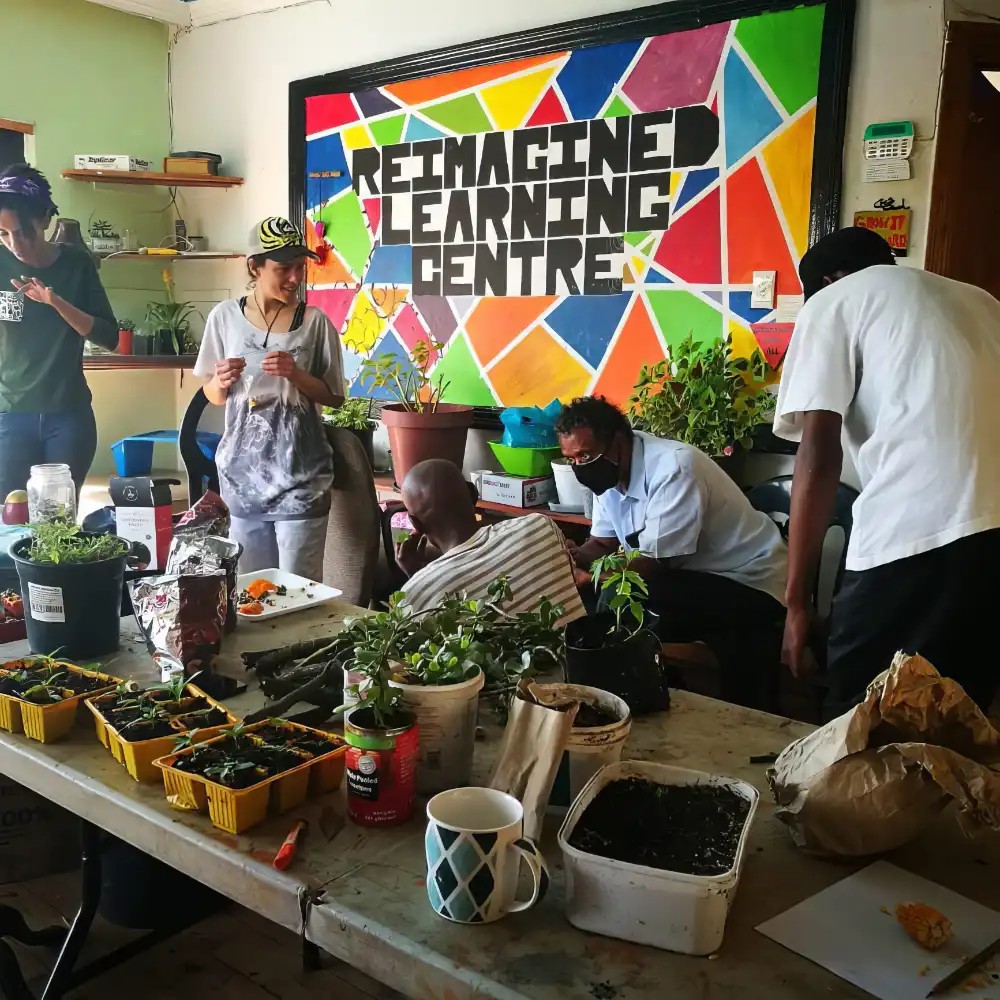
This is the thinking behind the Reimagined Learning Community that was founded in 2016. We’ve worked with, thus far, over a thousand families and young people from around South Africa, all the way from Zimbabwe down to Western Cape or Cape Town. Our work includes learning indigenous knowledge and indigenous practices with land. We organize dialogues or ‘convers-actions’, rituals and practices with our community. For example we held a festival where different practitioners (whom we call wisdom keepers) from around South Africa and other parts of Africa, came together with young people, parents and communities to share knowledge and practices on how to rewrite the script of climate catastrophe. How we could organize and mobilize actions to change the narrative on that which is happening on earth. At this festival, we learnt to recycle plastics into eco bricks, to recognize plants (that are often dismissed as weeds) and their nutritional value. We’ve also conducted intergenerational dialogues where we speak about certain issues within our communities. Another element of our work is to restore areas of play. We clean up areas that are extremely polluted and create a space that activates a sense of play and safety within.
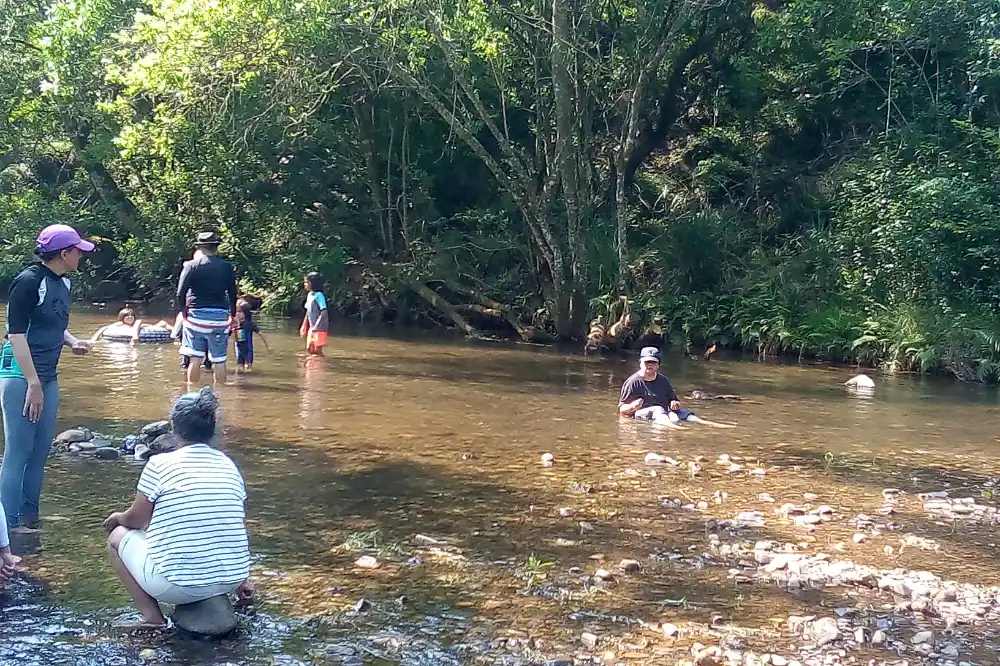
I think one of the most critical issues that we face in our community is a lack of a sense of belonging. It’s easy for us to throw litter everywhere. It’s easy for us to not see the correlation between our drinking water and our habits and practices on earth. In my opinion, all of these things are brought on by the system. The system needs us to be disconnected from the Earth in order to burn plastic that is mass produced by companies. We need to be disconnected from the Earth to not care about our water systems. We need to be disconnected from the Earth to not care about each other.
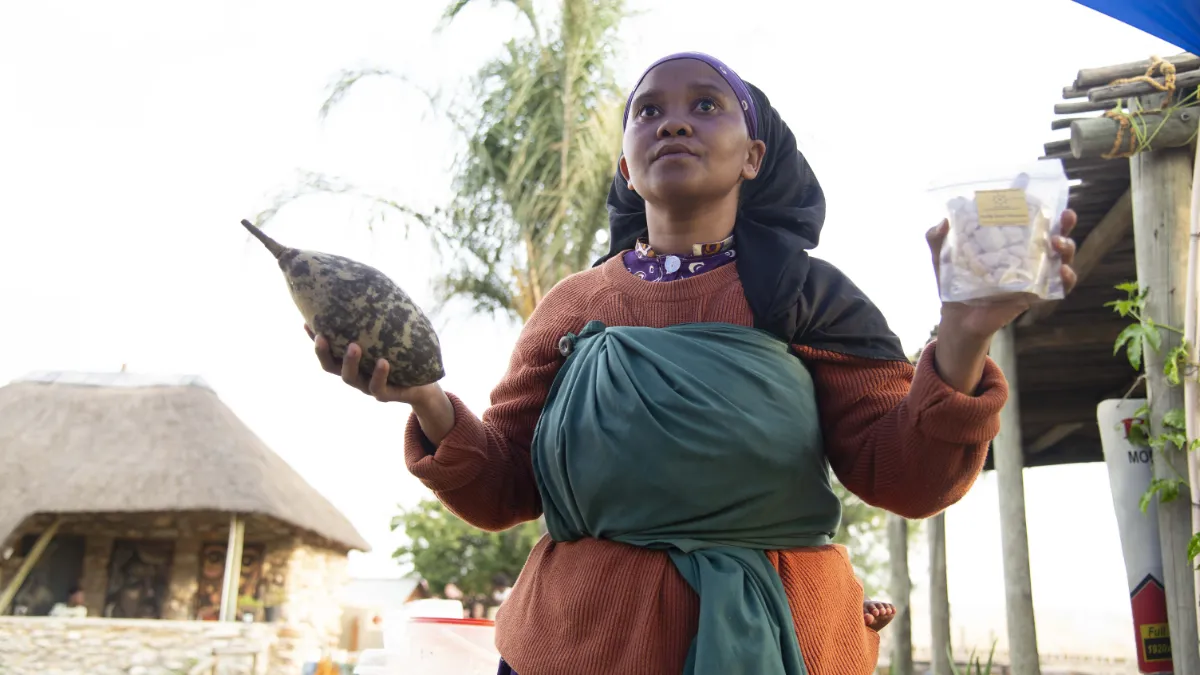
Amidst this, hearing narratives of resilience, of mobilization on what that looks like for different people around the world, specifically brown and black bodies and indigenous communities who are most affected by the climate crisis, builds hope and solidarity. There’s nothing more empowering than building and feeling this deep sense of belonging. I can proudly, and with great humility, say that we have built a community who are aware of these issues. And this makes the fight or the work even stronger. As parents and young people coming together to attend to these issues and to see how our actions are really making profound changes to the way we relate to the earth and each other.
